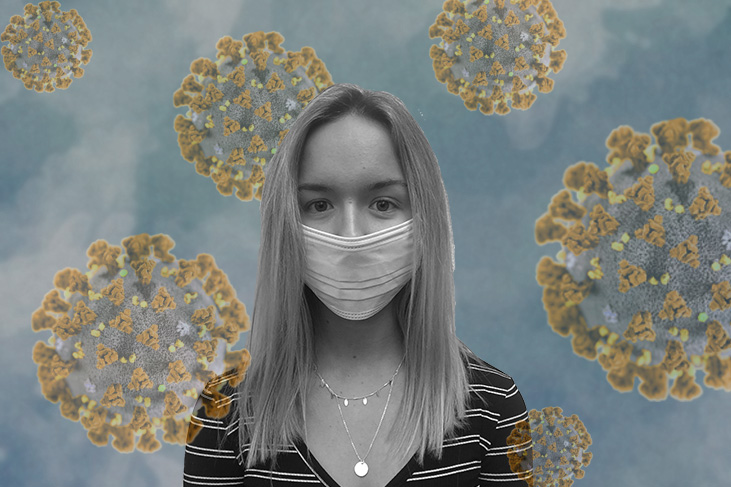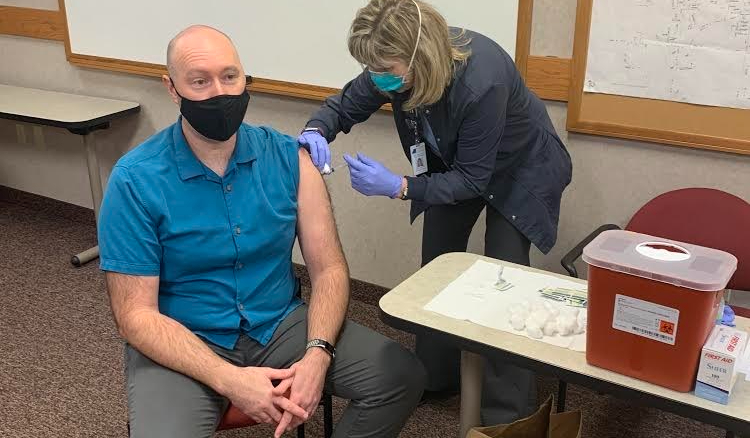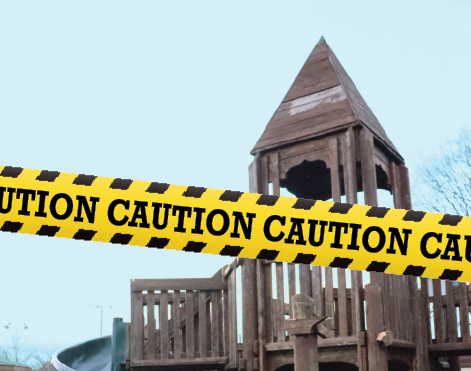BY KATE MESSAM
*All data in this article was accurate as of March 6, 2020*
Novel coronavirus (COVID-19) has spurred mayhem all over the world, both in the media and in real life, since confirmed cases boomed in China in December 2019. The risk concerning the spread of the pneumonia-like illness is the unpredictability of its effects and the absence of vaccines and treatments.

Medical specialists are not unfamiliar with coronaviruses. The viruses are a variety of strains that can affect both humans and animals. Animal diseases, however, are much more of a cause for worry. Previous coronaviruses, such as Middle East respiratory syndrome (MERS) and severe acute respiratory syndrome (SARS), left thousands infected across the globe. COVID-19 presents similarities to MERS and SARS, as all three were first transmitted through the consumption of animals such as bats, camels and cat-like creatures.
Local infection preventionist Michele Messam says the publics current concern should be focused on the hazardous flu season that America faces. During the month of February, over 3,000 Ohioans were hospitalized for the flu according to the Ohio Department of Health.
“The flu is worse than we’ve seen in a couple of years,” said Messam. “Early CDC testing on the flu vaccine shows it’s around 45% effective which is higher than it’s been in recent years, but we’re still seeing a lot more hospitalized patients.”
The CDC originally told U.S. citizens to be on alert throughout the last few months. However, the easy spread has now upped the nation’s status to “high alert.” Eleven deaths caused by COVID-19 have been confirmed in America. Dr. Nancy Messonnier, director of the CDC’s National Center for Immunization and Respiratory Diseases, stated the progressive nature of the virus by warning people of the potential spread throughout the country.
“We expect we will see community spread in this country,” said Messonnier. “It’s not so much a question of if this will happen anymore, but rather more a question of exactly when this will happen and how many people in this country will have severe illness.”
Community spread is when the virus spreads from an area of unknown origin. Areas along the west coast have been affected by community spread. Messonnier added that the CDC is not positive if this form will be mild or severe in its spread.
As a response to the CDC’s plan to prepare in the U.S., Medina County Health Department’s Christy Rickbrodt, who works in Health Promotion and Planning Supervisor, and Epidemiologist and Emergency Planner, Brent Styer, assure the public that, in the case of COVID-19 spreading to Medina County, they have a plan of action.
“What this team does 24/7 365 days a year is focused on identification, isolation, diagnosis and contact tracing for more than six dozen diseases,” said Rickbrodt and Styer. “MCHD staff have planned and trained for outbreaks as a regular part of our essential public health function and we have emergency plans in place to respond to any outbreaks that may occur within the county.”
Other than keeping healthy hygiene habits, the health department urges the practice of staying away from those who are ill and to get enough sleep. However, the urgency for facemasks in public is not necessary.
“Facemasks are not recommended for general public use. There is no hard evidence that wearing a mask protects the wearer outside of the healthcare setting,” said Rickbrodt and Styer.
Precautions to stop the spread of COVID-19 are being taken all over the world. In the Chinese province of Guangdong, native Dan Chu describes the preventative measures that citizens have taken into their own hands.

“In Hong Kong, people who catch a cold will voluntarily wear face masks just to prevent the spread of viruses because it’s a very dense city,” said Chu. “People here in the Guangdong Province are pretty diligent on how they react in public, so face masks are just to be nice.”
Chu currently lives in the city of Shenzhen where the second largest number of COVID-19 has been confirmed. The Chinese government previously allowed the citizens of Shenzhen to leave their homes, but only for short periods of time to retrieve essentials. All work was either halted or continued within homes. As of the end of February, businesses were permitted to bring back their workers.
“When this first broke out everyone was in panic mode, so I was as well, but we quickly learned that it’s sort of like the flu so as long as you take care of yourself you should be safe,” said Chu.
According to the World Health Organization’s daily situation report, Guangdong has had seven deaths as of February 25, with 1,437 confirmed cases within the province. Guangdong has almost fifty-five million more people than Hubei Province, which is home to Wuhan, the epicenter of COVID-19. Hubei has lost 2,902 citizens from the virus as of March 5. In a province that has double the population than that of its neighbor, Guangdong has managed to control the virus within their limits.
“We are much more confident and comfortable in stopping the virus from spreading than we were in the beginning,” said Chu. “With all the stats coming out, people are believing that it is calming down.”
Although Guangdong has had little to no cases or deaths as the days throughout the month of February, the rest of the world has been significantly affected as of late. South Korea, Japan, Iran, and Italy have all been devastated by the virus. President Trump’s administration has created travel bans to all four countries, including China.
Wadsworth High School’s travel group, Grizzlies Abroad, has been planning a spring break trip to the European countries of Slovenia, Austria, Czechia, and Italy. However, the group had to change their plans since the recent travel ban to Italy.
“Currently we are looking at countries to the east including Hungary, Poland and Slovakia. Also of great importance is choosing alternative locations that can offer us a range of experiences both cultural and historical,” said Wadsworth High School staff Pamela Csaky, who will also be attending the trip.
While abroad, the group will be closely monitoring the increasing spread of COVID-19 and planning their trip accordingly
“We certainly will continue to track outbreaks while traveling and making any necessary travel changes if needed,” said Csaky. “While traveling, we will continue to emphasize everyday preventive actions like good hand washing practices, hand sanitizer, staying away from sick people, etcetera.”
The current primary belief of how COVID-19 spreads, according to the Ohio Department of Health, is through people being within six feet of an infected person and coming into contact with their contagious respiratory droplets. The symptoms become evident within two weeks of exposure and those affected experience coughing, fever, and difficulty breathing.
To prevent developing illness from any respiratory viruses this winter, including COVID-19 and the flu, Messam recommends practicing proper respiratory etiquette and hand hygiene.
“To help prevent getting the flu, get your flu shot. However, washing your hands frequently, coughing into your elbows, and trying not to touch your eyes, mouth and nose without washing your hands, will help protect you and others from many respiratory illnesses.”
The wide range of symptoms, from a minor cold-like illness to severe pneumonia, has impeded organizations like the World Health Organization and the CDC from being able to quickly identify a solution. As more information is obtained from cases, though, health experts will be able to more accurately address COVID-19, and determine how much concern should be focused on the virus.








































